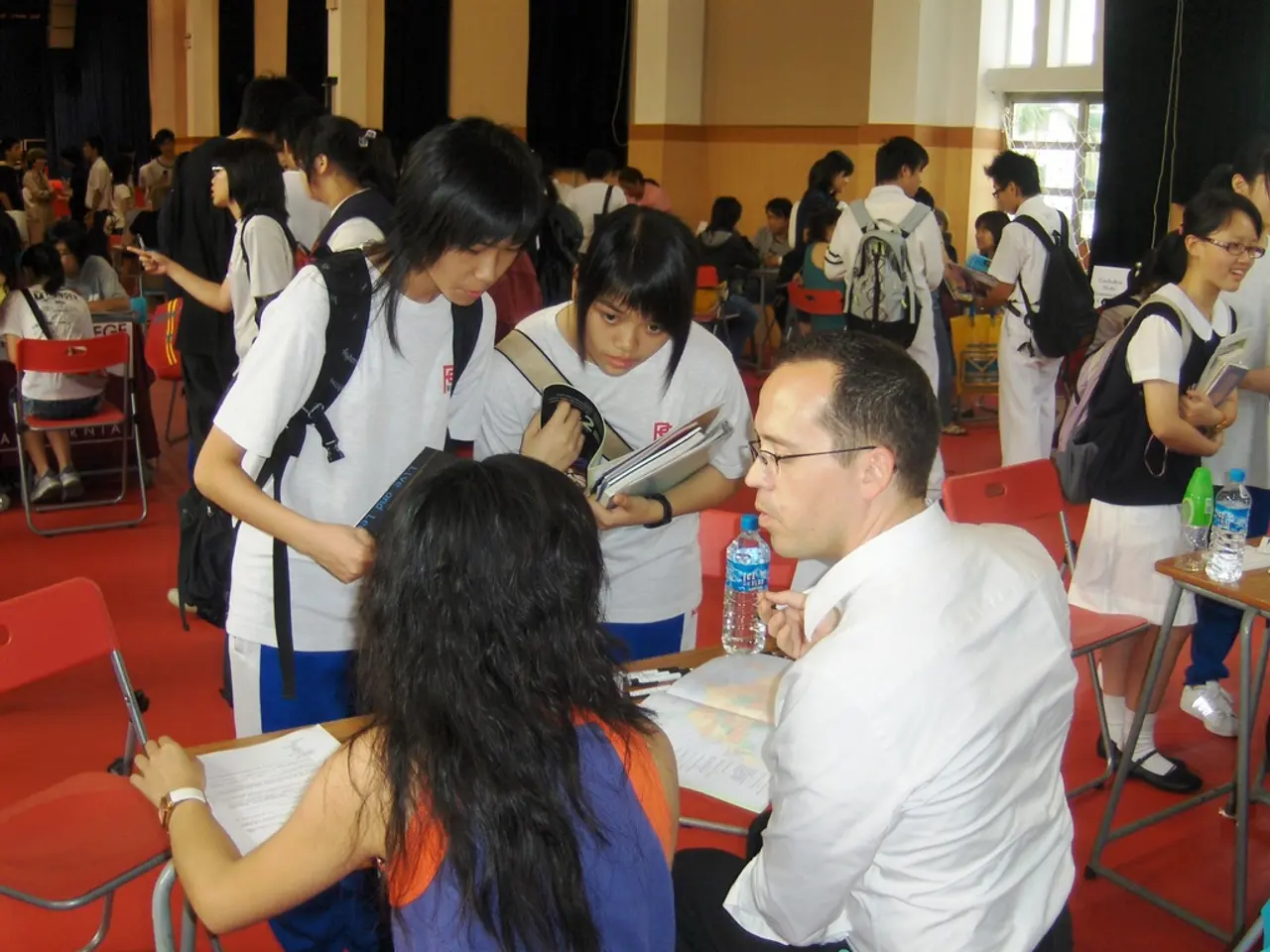Updates to the IB ESS Syllabus in 2025: Key Points You Should Be Aware of
The International Baccalaureate (IB) has unveiled a revised Environmental Systems and Societies (ESS) syllabus for 2025 and beyond, focusing on practical skills, inquiry-based learning, and contemporary environmental issues.
The updated syllabus brings significant changes to the curriculum content, assessment formats, and teaching approach. Key among these changes is a stronger emphasis on topics such as climate change, biodiversity, global resource consumption, and resilience to environmental risks [2][5].
To foster hands-on scientific inquiry abilities and independent research skills, the syllabus integrates practical fieldwork and investigation skills prominently [2][5]. Students are expected to conduct fieldwork, collect data, analyse information critically, and evaluate results through written reports.
Assessment formats have been updated to reflect this practical focus. Extended response questions emphasising analysis and synthesis, structured questions based on real-world data and visuals, and an internal assessment based on practical fieldwork investigations now feature in the question papers [2][5].
Moreover, the syllabus adopts a more inquiry-driven educational experience, encouraging exploration of environmental themes in contexts linking science and societal issues, thereby enhancing interdisciplinary understanding [5].
The new curriculum also reinforces themes around human impacts on the environment and sustainability, ecosystem interactions, and environmental management strategies [2][5]. It emphasises perspectives and sustainability, including ethical viewpoints and long-term policy links.
In the Higher Level (HL) course, students will encounter specialized lenses not previously assessed, such as Environmental Law, Environmental Ethics, and Environmental Economics.
The internal assessment (IA) in the new curriculum demands greater originality, integration of sustainability frameworks, and use of real-world data.
To help students navigate these changes, resources like RevisionDojo have updated their notes, flashcards, and question bank to match the fresh curriculum structure. RevisionDojo's resources embed the thematic lenses of systems thinking and perspectives & sustainability across topic notes and quizzes.
The revamped syllabus also emphasises systems thinking, connections between ecological components, and feedback loops. This approach encourages a deeper understanding of interactions between human and environmental systems at multiple scales.
The International Baccalaureate ESS syllabus for 2025 and beyond offers both Standard Level (SL) and Higher Level (HL) courses. RevisionDojo's updated notes reflect the differences between these modules.
In summary, the 2025 IB ESS syllabus has expanded its topical coverage, refined its assessment to prioritise practical and analytical skills, and shifted towards a more inquiry-driven educational experience aimed at equipping students with both scientific and societal insights into environmental issues [2][5].
- To prepare for the updated International Baccalaureate (IB) Environmental Systems and Societies (ESS) syllabus in 2025, students may find online-education resources like RevisionDojo useful, as they have updated their revision tools such as flashcards and question banks to align with the revised curriculum structure, incorporating themes like systems thinking and perspectives & sustainability.
- In addition to traditional education methods, students can enhance their learning experience by utilizing modern tools such as flashcards and mobile apps designed for education-and-self-development, which can be particularly helpful for memorizing key environmental concepts and terms for the revised IB ESS syllabus.




